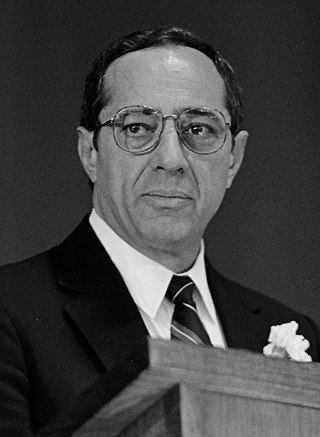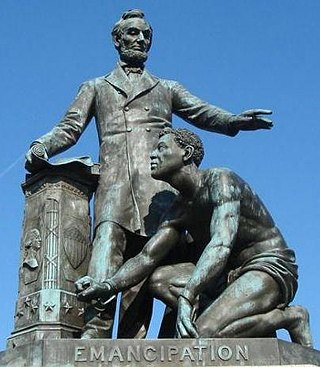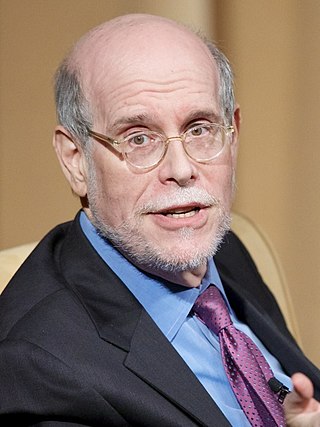Related Research Articles

The 1988 United States presidential election was the 51st quadrennial presidential election held on Tuesday, November 8, 1988. In what was the third consecutive landslide election for the Republican Party, their ticket of incumbent Vice President George H. W. Bush and Indiana senator Dan Quayle defeated the Democratic ticket of Massachusetts Governor Michael Dukakis and Texas senator Lloyd Bentsen.

Mario Matthew Cuomo was an American lawyer and politician who served as the 52nd governor of New York for three terms, from 1983 to 1994. A member of the Democratic Party, Cuomo previously served as the lieutenant governor of New York from 1979 to 1982 and the secretary of State of New York from 1975 to 1978. He was the father of former New York governor Andrew Cuomo and NewsNation anchor Christopher Cuomo.

The Director of Central Intelligence (DCI) was the head of the American Central Intelligence Agency from 1946 to 2004, acting as the principal intelligence advisor to the president of the United States and the United States National Security Council, as well as the coordinator of intelligence activities among and between the various US intelligence agencies.

From February 10 to June 9, 1992, voters of the Democratic Party chose its nominee for president in the 1992 United States presidential election. Despite scandals and questions about his character, Arkansas Governor Bill Clinton won the nomination through a series of primary elections and caucuses culminating in the 1992 Democratic National Convention held from July 13 to July 16, 1992, in New York City. Clinton and Tennessee Senator Al Gore were nominated by the convention for president and vice president, respectively.

The Conservative Party of New York State is an American political party founded in 1962 following conservative dissatisfaction with the Republican Party in New York. Running on the Conservative Party line, James L. Buckley won election to the U.S. Senate in 1970 and served for one term. Since 2010, the party has held "Row C" on New York ballots—the third-place ballot position, directly below the Democratic and Republican parties—because it received the third-highest number of votes of any political party in the 2010, 2014, 2018, and 2022 New York gubernatorial elections. The party is known for its strategy of attempting to influence the Republican Party in a more conservative direction.

The 2004 Republican National Convention took place from August 30 to September 2, 2004, at Madison Square Garden in New York City, New York. The convention is one of a series of historic quadrennial meetings at which the Republican candidates for president and vice president, and party platform are formally adopted. Attendance included 2,509 delegates and 2,344 alternate delegates from the states, territories and the District of Columbia. The convention marked the formal end of the active primary election season. As of 2023, it is the most recent major-party nominating convention, as well as the only Republican National Convention, to be held in New York City.

The domestic policy of the George W. Bush administration was the domestic policy of the United States from 2001 to 2009 while George W. Bush was president. Bush's main domestic policy advisors include Chairman of the Council of Economic Affairs Edward Lazear, Rob Portman, director of the Office of Management and Budget; U.S. Secretary of Labor Elaine Chao, Vice President Dick Cheney; U.S. Secretary of the Treasury Henry Paulson; U.S. Secretary of Commerce Carlos Gutierrez; U.S. Secretary of Health and Human Services Michael O. Leavitt and Allan Hubbard, director of the National Economic Council.

"The wrong war, at the wrong place, at the wrong time, and with the wrong enemy" is General Omar Bradley's famous rebuke in his May 15, 1951 Congressional testimony as the Chairman of the Joint Chiefs of Staff to the idea of extending the Korean War into China, as proposed by General Douglas MacArthur, the commander of the U.N. forces in Korea before being relieved of command by President Harry Truman on April 11, 1951.

Thomas James DiLorenzo is an American author and former university economics professor who is the President of the Ludwig von Mises Institute. He has written books denouncing President Abraham Lincoln and is well known among economists for his work chronicling the history of antitrust policy in the United States.
Article I, Section 8, Clause 11 of the U.S. Constitution, sometimes referred to as the War Powers Clause, vests in the Congress the power to declare war, in the following wording:
[The Congress shall have Power ...] To declare War, grant Letters of Marque and Reprisal, and make Rules concerning Captures on Land and Water ...

The 2004 United States presidential election was the 55th quadrennial presidential election, held on Tuesday, November 2, 2004. The Republican ticket of incumbent President George W. Bush and his running mate incumbent Vice President Dick Cheney was re-elected to a second term. They narrowly defeated the Democratic ticket of John Kerry, a senator from Massachusetts, and his running mate John Edwards, a senator from North Carolina.

Abraham Lincoln's position on slavery in the United States is one of the most discussed aspects of his life. Lincoln frequently expressed his moral opposition to slavery in public and private. "I am naturally anti-slavery. If slavery is not wrong, nothing is wrong," he stated. "I can not remember when I did not so think, and feel." However, the question of what to do about it and how to end it, given that it was so firmly embedded in the nation's constitutional framework and in the economy of much of the country, even though concentrated in only the Southern United States, was complex and politically challenging. In addition, there was the unanswered question, which Lincoln had to deal with, of what would become of the four million slaves if liberated: how they would earn a living in a society that had almost always rejected them or looked down on their very presence.

Roland E. Arnall was an American businessman and diplomat. As the owner of ACC Capital Holdings, he became a billionaire with Ameriquest Mortgage. Additionally he funded, financed and was the visionary and co-founder of the Simon Wiesenthal Center, and from 2006 until shortly before his death he was the United States Ambassador to the Netherlands.

Lewis E. "Lew" Lehrman is an American investment banker, businessman, politician, economist, and historian who supports the ongoing study of American history based on original source documents. He was presented the National Humanities Medal at the White House in 2005 for his contributions to American history, the study of President Abraham Lincoln, and monetary policy. In 1982, Lehrman ran for Governor of New York against Democratic candidate Mario Cuomo, ultimately losing the election by two percentage points.
Tom Freiling is an American author and publisher of books on business, faith, culture, and health. Freiling is the CEO of Freiling Publishing and the founder of Xulon Press, acquired by NASDAQ publishing group Salem Communications in 2006. He sits on Forbes Business Council, the Executive Board at Fast Company and is a contributing writer at Entrepreneur.

Harold Holzer is a scholar of Abraham Lincoln and the political culture of the American Civil War Era. He serves as director of Hunter College's Roosevelt House Public Policy Institute. Holzer previously spent twenty-three years as senior vice president for external affairs at The Metropolitan Museum of Art in New York before retiring in 2015.
President Bill Clinton made two appointments to the Supreme Court of the United States, both during his first term.
The Lincoln Bedroom for contributors controversy was an American political controversy in the 1990s during the Clinton Administration. It refers to the alleged selling of overnight stays in the Lincoln Bedroom in the White House in return for political campaign contributions. It occurred in the context of the larger and somewhat separately focused 1996 United States campaign finance controversy. Despite allegations of wrongdoing the justice department never opened an investigation or pressed criminal charges in connection to the Lincoln Bedroom matter.
Matilda Cuomo is an American advocate for women and children, former First Lady of New York from 1983 to 1994, and matriarch of the Cuomo family. She is the widow of Governor of New York Mario Cuomo and mother of Andrew Cuomo who also served as Governor of New York before resigning in August 2021 and former CNN presenter Chris Cuomo. The founder of the child advocacy group Mentoring USA, Cuomo was inducted to the National Women's Hall of Fame in 2017.

A Tale of Two Cities was a speech delivered by New York Governor Mario Cuomo on July 16, 1984, at the Democratic National Convention in San Francisco, California. The speech galvanized the convention; it was watched on television by nearly 80 million people and received copious attention in the media. Less than halfway through his first term as governor, Cuomo was widely celebrated for the speech, and he took on new political cachet as a Democratic leader on a national scale.
References
- 1 2 3 Wolfe, Alan (2004-09-06). "Why Lincoln Matters by Mario MCuomo". www.commonwealmagazine.org. Commonweal Magazine. Retrieved 2024-05-01.
- ↑ WHY LINCOLN MATTERS | Kirkus Reviews.
- ↑ "WHY LINCOLN MATTERS: Today More Than Ever by Mario Matthew Cuomo". www.publishersweekly.com. Retrieved 2024-05-01.